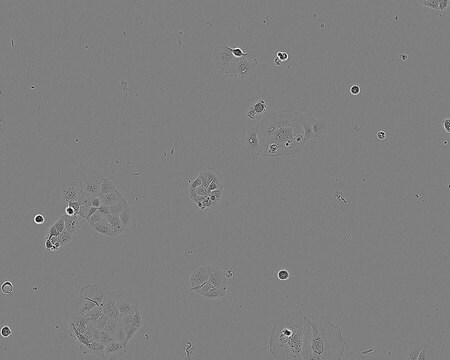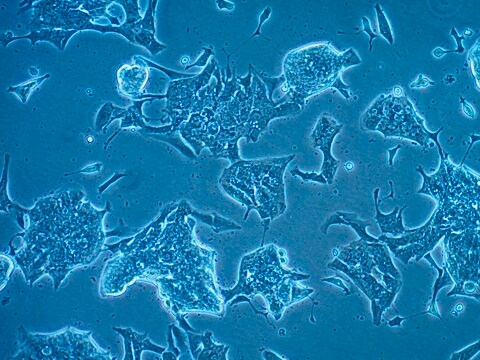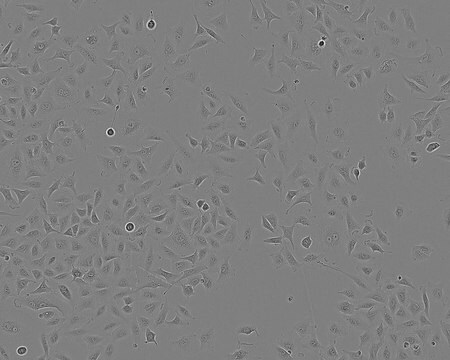VCaP Cell Line human
6020201, human prostate (metastasis), Epithelial
Sinónimos:
Human VCaP Cells, VCaP Cell Culture
About This Item
Productos recomendados
product name
VCaP Cell Line human, 06020201, Prostate Cancer Metastasis
biological source
human prostate (metastasis)
growth mode
Adherent
karyotype
Refer to reference (Korenchuk et al., 2001)
morphology
Epithelial
products
Not specified
receptors
Androgen receptor
technique(s)
cell culture | mammalian: suitable
relevant disease(s)
metastasis
shipped in
dry ice
storage temp.
−196°C
Cell Line Origin
Cell Line Description
DNA Profile
CSF1PO: 10,12
D13S317: 11,12
D16S539: 9
D5S818: 12
D7S820: 9,12
THO1: 9.3
TPOX: 8,11
vWA: 18,19
Culture Medium
Subculture Routine
Other Notes
Certificados de análisis (COA)
Busque Certificados de análisis (COA) introduciendo el número de lote del producto. Los números de lote se encuentran en la etiqueta del producto después de las palabras «Lot» o «Batch»
¿Ya tiene este producto?
Encuentre la documentación para los productos que ha comprado recientemente en la Biblioteca de documentos.
Nuestro equipo de científicos tiene experiencia en todas las áreas de investigación: Ciencias de la vida, Ciencia de los materiales, Síntesis química, Cromatografía, Analítica y muchas otras.
Póngase en contacto con el Servicio técnico


